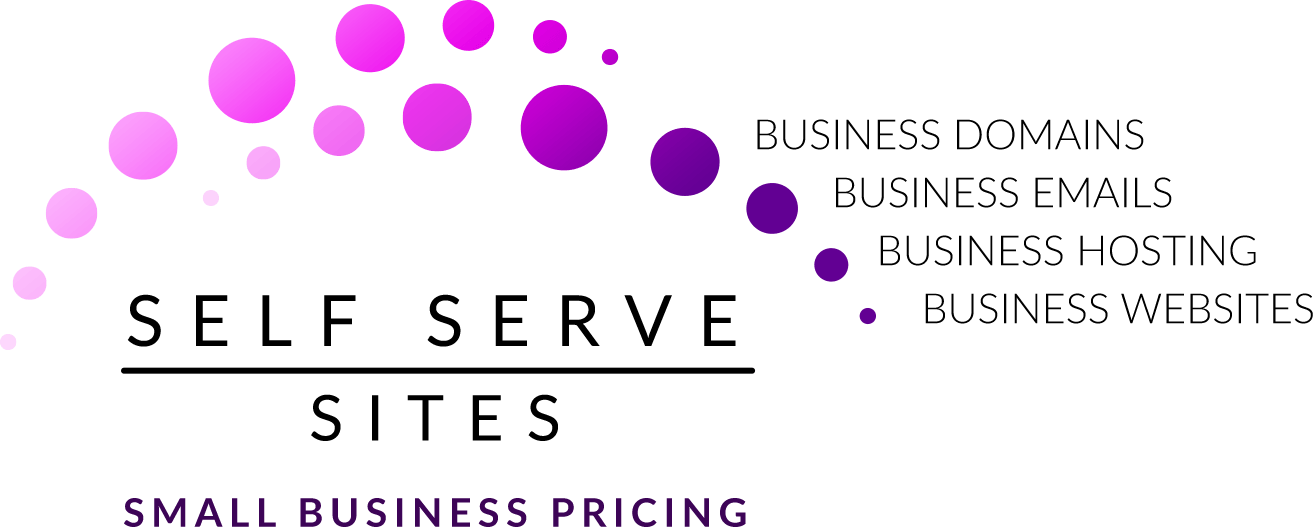Types of Australia Web Hosting for Small Businesses
When it comes to launching a Website for your Small Business, one of the most important decisions you'll need to make is selecting the right type of Australia Web Hosting. The Hosting service you choose will determine your Website’s performance, reliability, security, and scalability. There are several different types of Australia Web Hosting available, each designed to meet specific needs and budgets. Understanding these options can help you make an informed decision about which one is best suited for your business.
In this blog, we’ll break down the most common types of Australia Web Hosting and help you determine which is the best fit for your Small Business.
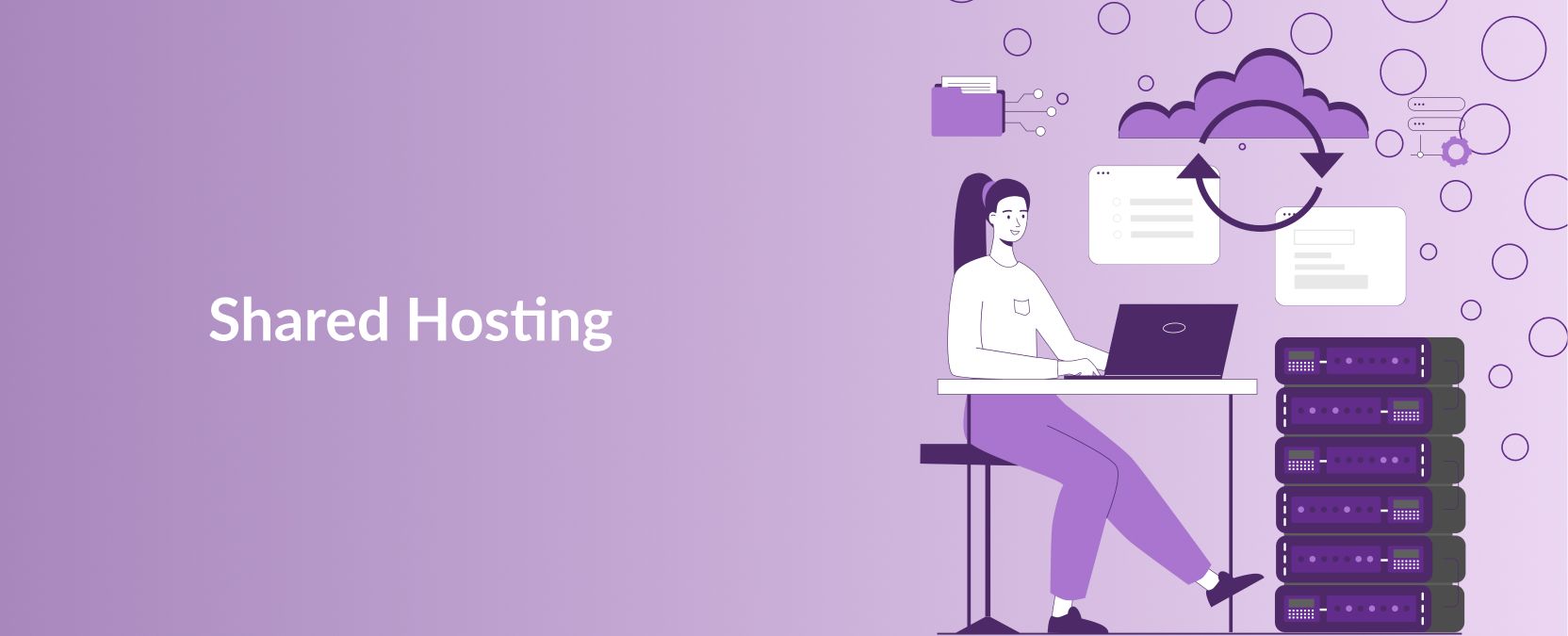
Shared Hosting
Best for: Small Businesses with low traffic or those just starting out.
Shared Hosting is the most budget-friendly option, making it a great choice for Small Businesses that are just starting out or have relatively low Website traffic. With shared Hosting, your Website shares server resources (like CPU, memory, and storage) with other Websites. Because of this, shared Hosting is very affordable, but it can also lead to slower speeds or downtime if other Websites on the same server experience high traffic.
Key Features:
- Low cost: Shared Hosting plans are typically very affordable, making them ideal for Small Businesses on a tight budget.
- Simple setup: Most Hosting providers offer easy-to-use control panels (like cPanel) and one-click installations for popular Website platforms like WordPress.
- Limited resources: Because you share resources with other Websites, you may experience performance issues if other sites consume a lot of bandwidth.
Pros:
- Very affordable (starting at just a few dollars per month).
- Good for small Websites or blogs with low traffic.
- Easy to use, even for beginners.
Cons:
- Limited resources (you share server space with other Websites).
- Can result in slower loading speeds during high traffic times.
- Less control over server settings.
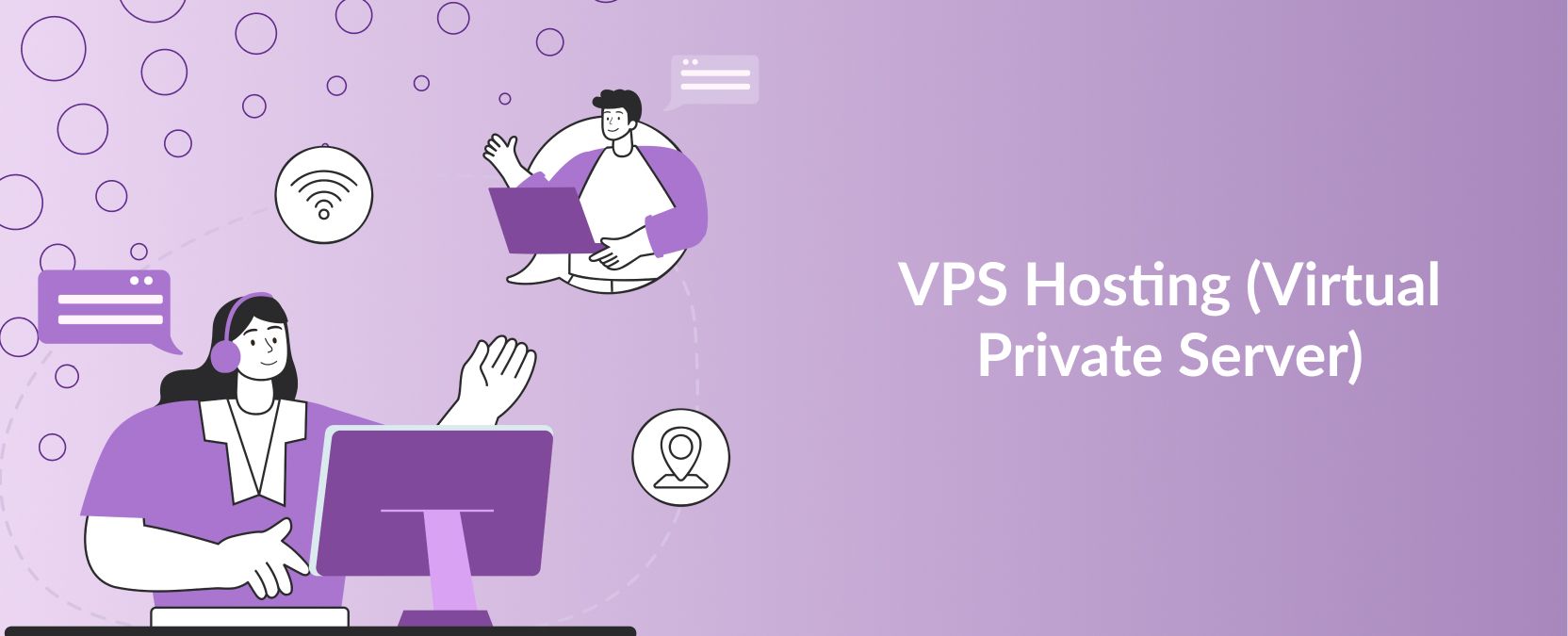
VPS Hosting (Virtual Private Server)
Best for: Small Businesses with moderate traffic or growing Websites that need more control and performance.
VPS Hosting provides more power and flexibility than shared Hosting. With VPS Hosting, your Website still shares a physical server with other sites, but it’s allocated its own virtual resources. This means you get a dedicated portion of the server's CPU, memory, and bandwidth, which leads to improved performance and more control over your Hosting environment.
VPS Hosting is ideal for Small Businesses that are growing and need better performance, but aren’t yet ready to invest in a dedicated server.
Key Features:
- More resources: Unlike shared Hosting, you get a dedicated portion of the server’s resources, improving performance.
- Greater control: You have more flexibility to install custom software and configure server settings.
- Scalability: It’s easier to upgrade resources as your business grows.
Pros:
- More powerful and faster than shared Hosting.
- Greater control over the server environment (e.g., software installation).
- Scalable resources for growing businesses.
Cons:
- More expensive than shared Hosting (typically starting around $20 per month).
- Requires more technical knowledge to manage the server.
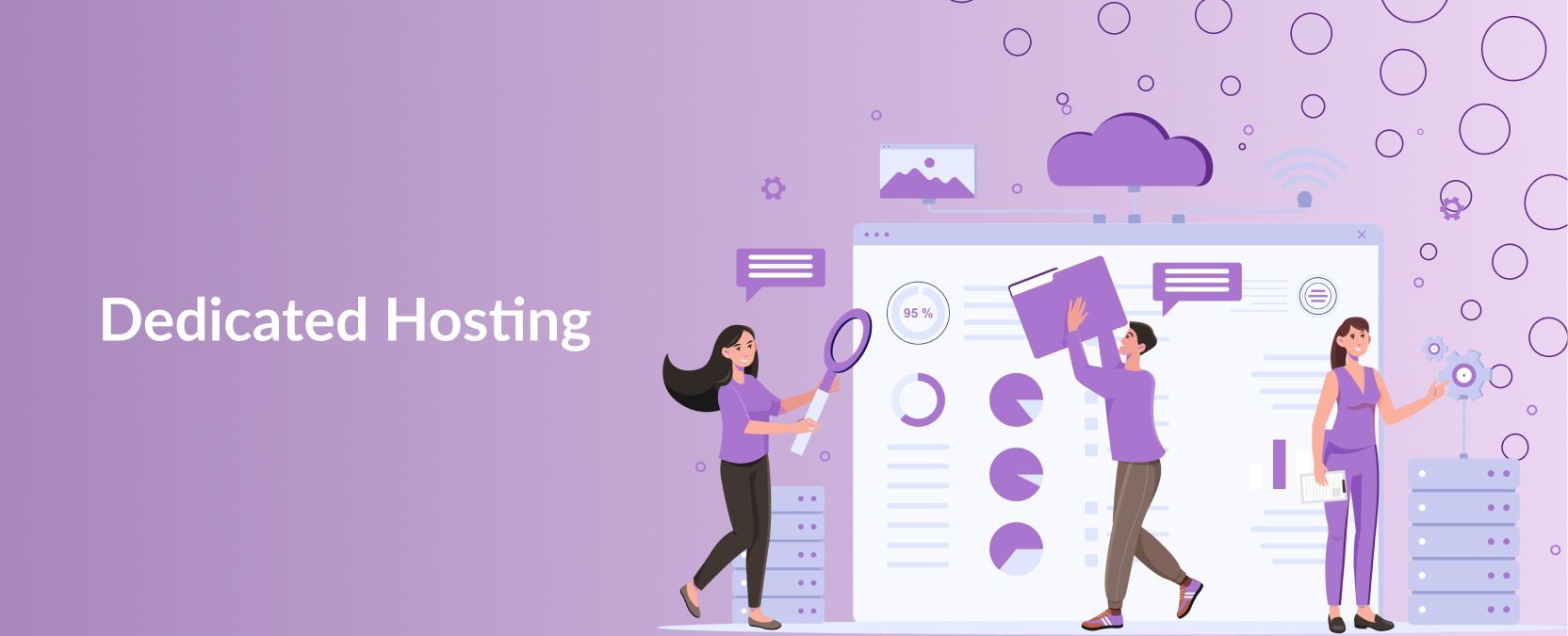
Dedicated Hosting
Best for: Small Businesses with high traffic, complex Websites, or those requiring maximum control and performance.
Dedicated Hosting gives you an entire physical server dedicated solely to your Website. This option provides the highest level of performance, control, and security but comes with a significantly higher cost. Dedicated Hosting is typically best for businesses that have large, complex Websites, high traffic volumes, or special technical needs that require maximum server resources.
With dedicated Hosting, you have full control over the server’s configuration, software, and security settings. However, it’s also more challenging to manage, and it often requires technical expertise or hiring an IT professional.
Key Features:
- Full control: You have complete control over the server, including the ability to install custom software, configure settings, and manage security.
- Maximum resources: Your Website gets all the server’s resources, so performance is optimised, even with high traffic.
- Highest level of security: Dedicated Hosting provides enhanced security because you're not sharing resources with other Websites.
Pros:
- Full control over the server environment.
- Maximum performance and faster load times.
- Ideal for Websites with high traffic or complex requirements.
Cons:
- Expensive (can start at $100+ per month).
- Requires technical knowledge to manage.
- May be overkill for smaller Websites or those with limited budgets.
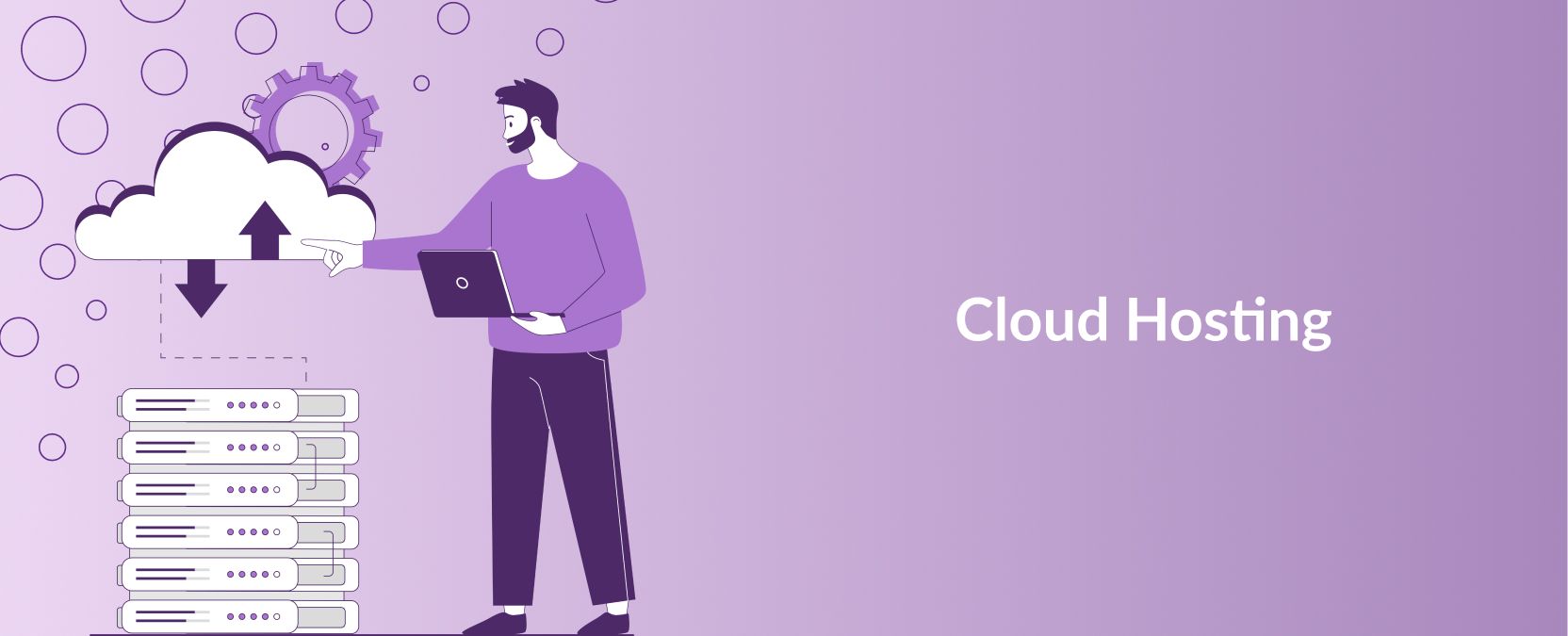
Cloud Hosting
Best for: Small Businesses that need flexibility, scalability, and high uptime.
Cloud Hosting is a more recent option that uses multiple servers in a network to host Websites. Instead of being limited to a single server, cloud Hosting distributes your Website’s data across a cluster of interconnected servers, which provides greater reliability and scalability. This is an excellent choice for Small Businesses that expect traffic spikes, need flexibility, or want to ensure that their Website remains online even if one server fails.
Cloud Hosting also offers pay-as-you-go pricing, meaning you only pay for the resources you actually use, making it a cost-effective option for businesses that experience fluctuating traffic.
Key Features:
- Scalability: You can easily scale resources up or down depending on your needs.
- High uptime: Cloud Hosting provides redundancy, so if one server goes down, others can take over.
- Pay-as-you-go pricing: You only pay for the resources you use, making it affordable for businesses with varying traffic levels.
Pros:
- Highly scalable and flexible.
- Better uptime due to multiple servers.
- Pay-as-you-go pricing for cost efficiency.
Cons:
- Can be more expensive than shared Hosting.
- Pricing may become unpredictable depending on resource usage.
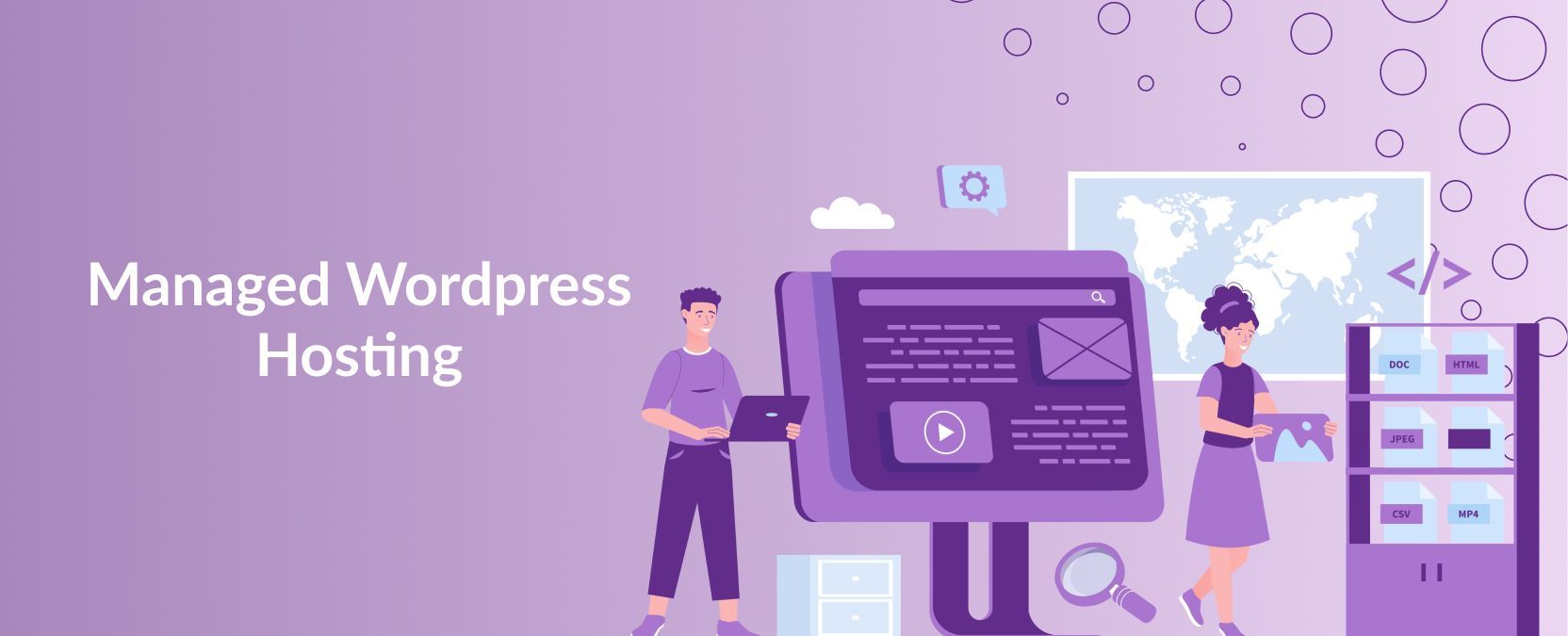
Managed WordPress Hosting
Best for: Small Businesses using WordPress that want a hassle-free Hosting experience.
If you’re running a WordPress Website, managed WordPress Hosting might be the best option. This type of Hosting is specifically optimised for WordPress sites and comes with added services such as automatic updates, enhanced security, and performance optimisation. Managed WordPress Hosting providers handle all the technical aspects, so you don’t need to worry about server management or software updates.
This type of Hosting is ideal for Small Business Owners who want to focus on content creation and running their business, rather than dealing with the technical details of maintaining a WordPress site.
Key Features:
- Optimised for WordPress: Servers are optimised for WordPress, ensuring faster load times and better performance.
- Managed services: The Hosting provider takes care of updates, backups, security, and performance optimisations.
- Great support: Managed Hosting providers offer expert support tailored to WordPress Websites.
Pros:
- Hassle-free and easy to manage for WordPress sites.
- Enhanced performance and security for WordPress.
- Expert support tailored to WordPress-specific issues.
Cons:
- More expensive than standard shared Hosting.
- Limited to WordPress Websites.

Which Type of Australia Web Hosting is Best for Your Small Business?
The best type of Australia Web Hosting for your Small Business depends on your specific needs, budget, and growth plans. Here’s a quick guide to help you decide:
- Shared Hosting is perfect for Small Businesses with low traffic and simple Websites.
- VPS Hosting is great for businesses that are growing and need more resources and control.
- Dedicated Hosting is ideal for businesses with high traffic or complex Websites that need maximum performance and control.
- Cloud Hosting offers scalability and flexibility for businesses with fluctuating traffic and needs for high uptime.
- Managed WordPress Hosting is best for Small Businesses using WordPress that want a hassle-free experience.
Choosing the right Hosting option will ensure that your Website runs smoothly and meets the needs of your Customers. Take the time to evaluate your business's specific requirements, and choose a Hosting plan that will provide the performance, security, and scalability you need as your business grows.










